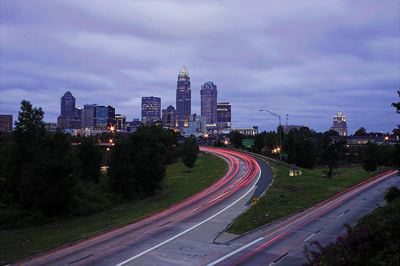No Light Rail in Vancouver!
Charlotte to Revote on Light Rail

Angry taxpayers raised enough money to collect tens of thousands of signatures to
put a transit tax back on the ballot in Charlotte, NC. Charlotte-
But cost overruns made the project controversial, and opponents want to stop the transit agency from beginning construction on more lines. The voters will get a chance to repeal the tax in November, just a few weeks before the first line opens for business.

Will Charlotte drivers switch to light rail or do they just want other people to switch so they can drive on uncongested roads?
Flickr photo by jacreative.
My friend Wendell Cox has a detailed article covering the projected light-
As a result, rail will never carry more than a tiny percent of the region’s commuters to work; planning documents predict just 1.8 percent by 2025. The 2000 census found that buses carry about 2.5 percent of commuters to work, and FTA data indicate that transit only carries about a half a percent of regional passenger travel.
Cox also notes that the planning documents for the light-
Lots of cities have seen cost overruns in their light-
The main hurdle rail opponents have to clear is convincing people that they can repeal the tax without suffering dire consequences. Rail supporters are saying that repealing the tax would require the city to refund hundreds of millions of dollars to the federal government; reduce bus service; and force the city to raise property taxes. Opponents say most of those claims are false. As always, the question is not who is right but who will get their claims, correct or not, out to the voters.
13
Trackback • Posted in News commentary, Transportation
Reprinted from The Antiplanner